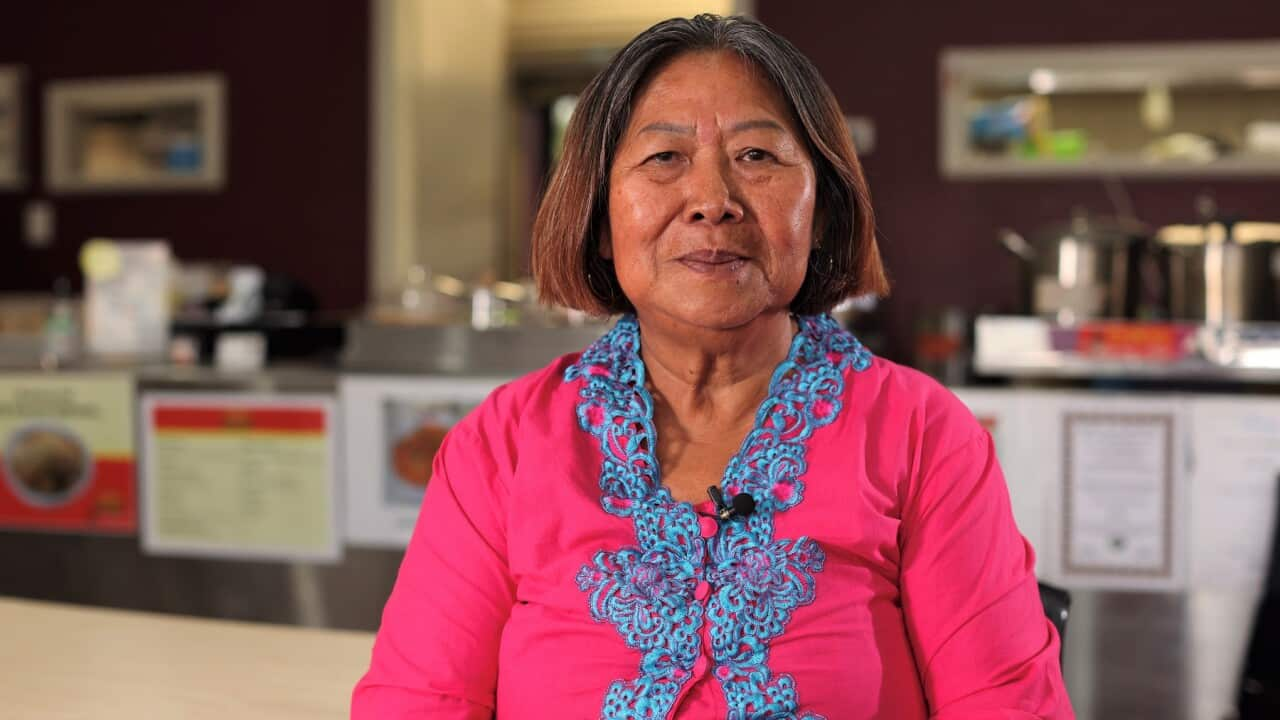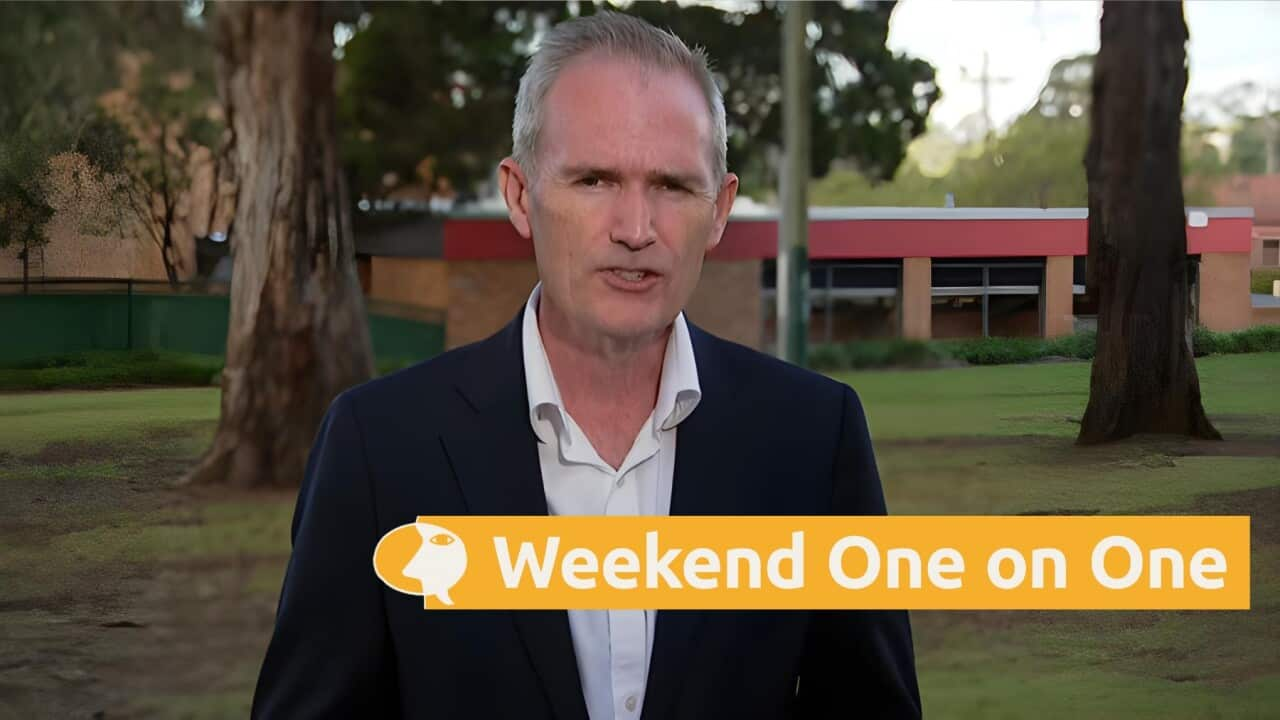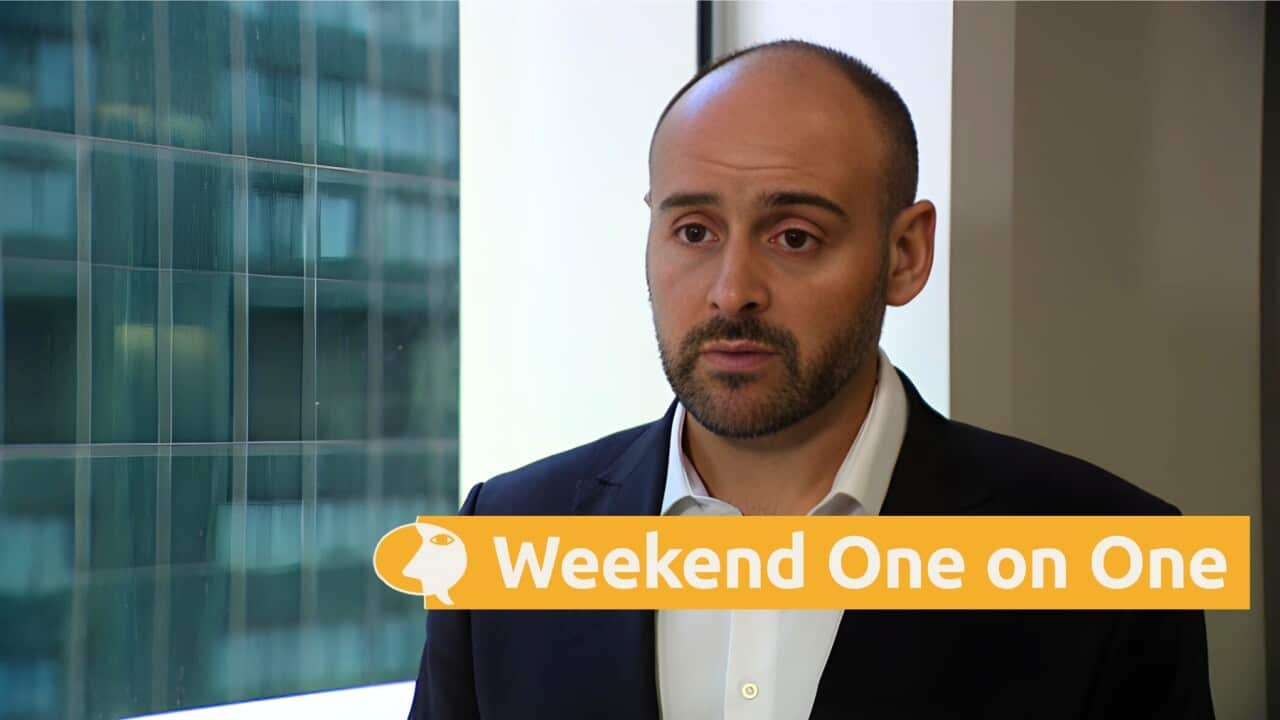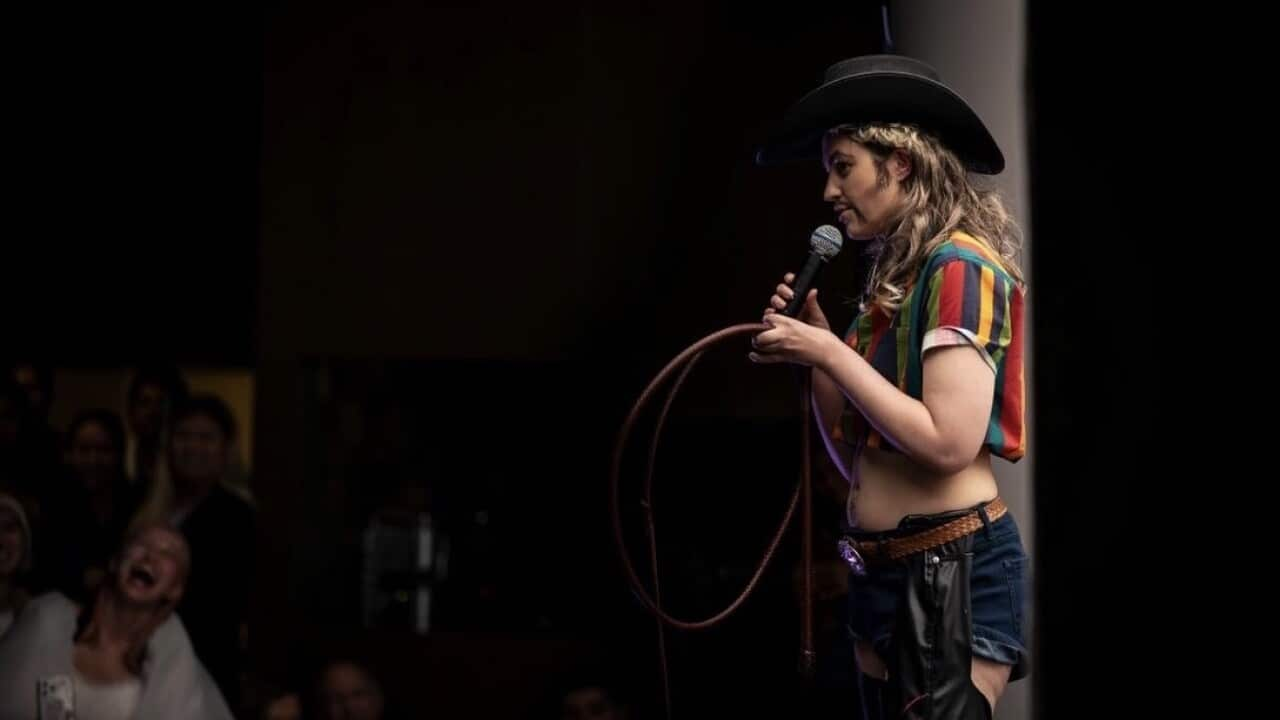TRANSCRIPT
At a small venue in Perth’s south-east, Indonesian migrant Yahya Scaf is preparing chicken, rice and noodle dishes.
The meals are not for sale to her café customers: they’re given free to those in need.
"We are going to the city, where we hand out all the food. Today, will be 200 packs of hot meals."
Yahya Scaf is known affectionately as ‘Ibu Ade’.
Ibu is an Indonesian word for mother or married woman.
The 63-year-old says 200 meals may sound like a lot but in the current housing crisis, the free meals will be gone within half an hour.
"I need 10 kilograms of rice. I need about three times one kilo of noodles, about one and a half kilos of frozen vegetables."
All the meals are prepared through Ibu Ade’s business, KwikFud Café by Warung Ade.
And she is proud to be helping so many in need, among them 51-year-old Brendon Benell.
"The homelessness is getting a bit worse. More people on the streets now. A lot of people are quick to judge. They don't understand what we're going through."
Demand for support services is soaring as the housing crisis impacts more people, according to Shelter WA.
The Australian Institute of Health and Welfare reports that 5,100 people every day are being helped by specialist homelessness services across the state.
That’s up by 27 per cent in the past five years.
Kath Snell is CEO of Shelter WA.
"We are seeing more and more people who have never presented to homelessness services before. It's a real brave thing for someone to do. What we really want is people to not have to do that because they have got somewhere safe to call home and they have got enough money to be able to put food on the table and get their own medical expenses."
It’s not just Perth – the housing crisis is a national problem and a key election issue, with both sides of politics proposing relief for first homebuyers, plus measures to boost construction and increase supply.
Dr Nicola Powell is chief of research and economics at Domain Insight.
"We've seen an extraordinary period across Australia's housing market over the past five years. We've seen an escalation in prices, but also we've seen a growth in rents that we really have never experienced before. And it is Perth and Adelaide that remains those top performers in terms of price growth and they remain the most competitive capital cities for renters as well."
It’s a trend that’s driving homelessness nationwide.
The Australian Bureau of Statistics predicts almost 130,000 people will experience homelessness this year, as Kath Snell explains.
"We're talking thousands of people who might be earning and in employment, but they still can't afford the average rental. So what we've seen is people that are earning a median income, but they can't afford the median rent, and that's where that affordability gap comes in."
It’s one reason Ibu Ade runs her free food service.
Brendon Benell says a weekly hot meal handout is vital for many doing it tough.
"We like it because we get fed here and it means we can get together, associate, have a meal, talk to people, get service, street doctor and all that. "
And there’s another reason Ibu Ade does so much for those with so little - she knows a bit about hardship after growing up in rural Indonesia where, as a child, she suffered abuse.
"I had a very bad experience. I had no justice given to me. That's why probably I'm a bit ... have the time for other people who struggle. "
Her free food service is growing steadily, thanks to donations and a small army of volunteers.
"We have roughly about 40 volunteers, the volunteers cooking the rice and then different people will come to do the packing. "
Ibu Ade is a mother of three and a proud Muslim.
She aims to bring the community closer, as a way to overcome Islamophobia.
And she is determined NOT to let prejudice – or wet weather – slow her down.
"Hunger will not disappear because of the rain. My children said: Mum, when do you think you're going to stop? I said ‘when the world is a better place for everybody to live’."













